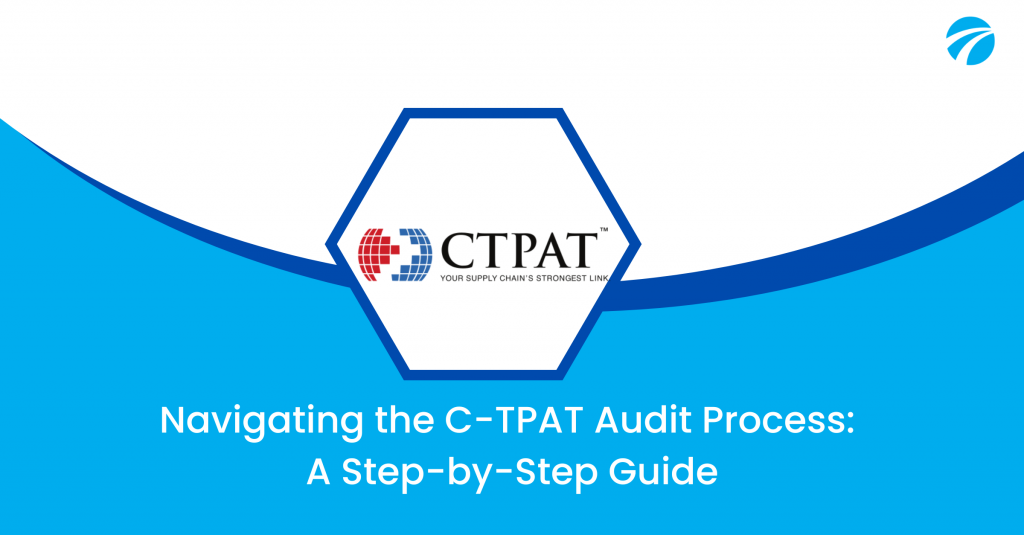What is a C-TPAT audit?
The C-TPAT audit (Customs-Trade Partnership Against Terrorism) is a supply chain security assessment program implemented by U.S. Customs and Border Protection (CBP). The goal of the audit is to ensure that participating importers have adequate security measures in place to protect against the risk of terrorism and other security threats.
C-TPAT audits are conducted on a voluntary basis, and companies that participate in the program may be eligible for benefits such as reduced inspection times and prioritized processing at ports of entry. To participate in the C-TPAT program, companies must complete a self-assessment questionnaire and undergo an on-site audit to verify their security measures.
The audit process involves a thorough review of the company’s security practices and procedures, including the physical security of its facilities, employee background screenings, and the security of its supply chain. The CBP will also assess the company’s ability to detect and prevent security breaches, as well as their overall security culture.
C-TPAT Eligibility Criteria

In order to be eligible for C-TPAT, an organization must:
- Be engaged in the international movement of goods.
- Be based in the United States or have a U.S. presence.
- Have a history of compliance with U.S. customs laws and regulations.
- Be willing to implement and maintain a robust security program that meets the CTPAT security criteria.
- Be willing to submit to an initial validation of its security program by CBP and periodic validations thereafter.
- Agree to share information with CBP and other government agencies as needed to support the goals of the program.
- Be an active U.S. exporter out of the U.S. with a documentable Employer Identification Number or Dun & Bradstreet number
- Have a business office staffed in the U.S.
- Have a documented export security program and a designated officer or manager who will act as the CTPAT program main point of contact (the participant should have an alternate point of contact as well)
Commit to maintaining the CTPAT supply chain security criteria, as outlined in the CTPAT exporter agreement. - Create and provide CBP with a CTPAT supply chain security profile that identifies how the exporter will maintain and enhance internal policy to meet CTPAT exporter security criteria.
- Have an acceptable level of compliance for export reporting for the latest 12-month period and be in good standing with federal agencies such as the Department of Commerce, Department of State, Department of the Treasury, Nuclear Regulatory Commission, Drug Enforcement Administration and Department of Defense.
It’s worth noting that these are general guidelines and your organization should review the agreement and speak with CBP regarding specific requirements.
CTPAT Audit requirements:
To become a C-TPAT member, a company must complete a detailed application process and agree to implement certain security measures throughout its supply chain. Here are some of the C-TPAT requirements:
Complete a self-assessment questionnaire:
Undergo an on-site audit:
The on-site audit is conducted by CBP officials and involves a thorough review of the company’s security measures.
Physical security of facilities:
The CBP will assess the security measures in place at the company’s facilities, including access controls, customer database, and surveillance systems.
Employee background checks:
The company must have processes in place for conducting background checks on employees and conduct a risk assessment inspection to ensure that all the correct documents are in order and they are trustworthy and do not pose a security risk.
Supply chain security:
The company must have measures in place to secure its supply chain and protect against the risk of terrorism.
Ability to detect and prevent security breaches:
The CBP inspections are designed to assess the company’s ability to detect and prevent security breaches.
Overall security culture:
The CBP will evaluate the company’s overall security culture and commitment to supply chain security.
By meeting these CTPAT requirements, companies can demonstrate their commitment to supply chain security and potentially receive benefits such as reduced inspection times and priority processing at ports of entry and more importantly, be C tpat compliant.
How does CTPAT Complaince Audit benefit private companies?

The Customs Trade Partnership Against Terrorism (C-TPAT) is a program implemented by U.S. Customs and Border Protection (CBP) to enhance supply chain security and protect against the risk of terrorism. Private companies can participate in the program on a voluntary basis and may be eligible for many benefits such as reduced inspection times and prioritized processing at ports of entry. By demonstrating their commitment to supply chain security through the C-TPAT audit process, private companies can potentially gain these benefits and improve their overall supply chain security.
C-TPAT Compliance: How Private Companies are Securing Their Supply Chains
The C-TPAT program requires private companies to implement certain security measures throughout their supply chain, such as physical security of facilities, employee background checks, and supply chain security protocols. Additionally, companies must have measures in place to detect and prevent security breaches and maintain a strong overall security culture. By meeting these requirements, private companies can demonstrate their commitment to supply chain security and ensure the protection of their goods and facilities.
How can a third-party inspection company assist with C-TPAT compliance and supply chain security?
Third-party inspection companies, such as Tetra Inspection, can provide expert guidance and support throughout the C-TPAT audit process. We can work with you to ensure your security plan meets all necessary requirements, such as conducting thorough reviews of physical security measures and employee background checks. Additionally, we can also assist with supply chain security assessments and provide ongoing support to maintain compliance and ensure the protection of your entire supply chain.
How Tetra Inspection Can help you with C-TPAT Compliance Audit?
As a participant in the C-TPAT program, you may be required to undergo an audit to ensure that you are meeting the program’s minimum security criteria. This can be a stressful and time-consuming process, especially if you are not fully prepared for it.
Tetra Inspection can help you navigate the C-TPAT audit process by providing expert guidance and support and helping your company become CTPAT certified. Our team has extensive experience in C-TPAT compliance and can work with you to ensure that your security plan meets all of the necessary requirements.
To learn more about our services, contact us today!

